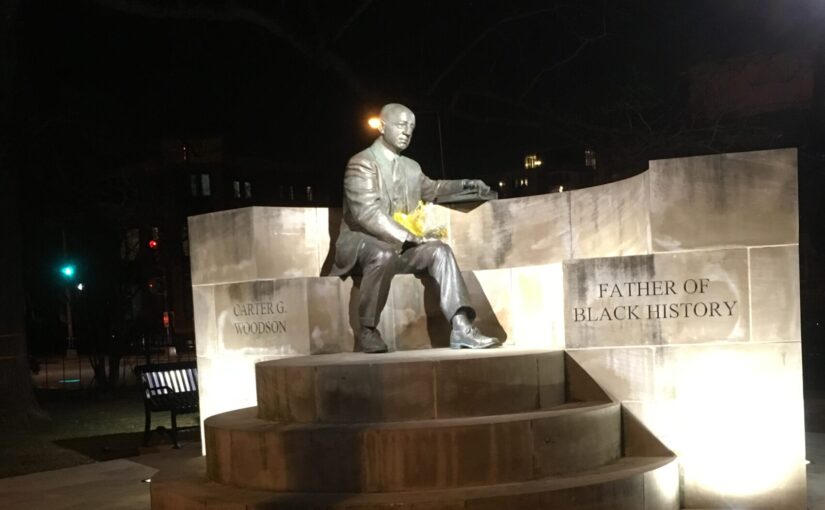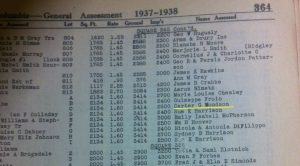This is a series regarding Shaw resident Carter G. Woodson’s book The Mis-Education of the Negro.
Post long disclaimer- I feel I need to mention my background and biases. I have a graduate degree studying Modern European History. As an undergrad, I studied Early Modern European History, mainly focusing on the Tudors, the Stuarts and Ireland. Why? Because those were the classes where I got better grades. I learned my lesson losing a scholarship for 1 year due to poor grades (failed Business school math), I stuck with the classes that upped my GPA. I took one class on African History.
I studied the ‘Atlantic World’ looking at the triangle trade taking place between Europe, Africa and the New World. For some reason, I wrote a grad school paper comparing South African agriculture and the sharecropping system in the US South regarding Black people. So I have a tiny bit of South African history under my belt.
That said, I have my opinions when I read Woodson’s words on ‘our history.’ I also understand he was a man of his time and the challenges of what was being taught in the public school system and in Black colleges were real. That challenge was that the education system dismissed the Negro (I’m going to use his words) and the African.
“At a Negro summer school two years ago, a white instructor gave a course on the Negro, using for his text a work which teaches that whites are superior to the blacks. When asked by one of the students why he used such a textbook the instructor replied that he wanted them to get that point of view. Even schools for Negroes, then, are places where they must be convinced of their inferiority. “
So that was a problem.
“Practically all of the successful Negroes in this country are of the uneducated type or of that of Negroes who have had no formal education at all. The large majority of the Negroes who have put on the finishing touches of our best colleges are all but worthless in the development of their people.”
It doesn’t really get any better. He pretty much considers the Black college graduate useless.
Last quote for this post : “And even in the certitude of science or mathematics it has been unfortunate that the approach to the Negro has been borrowed from a “foreign” method. For example, the teaching of arithmetic in the fifth grade in a backward county in Mississippi should mean one thing in the Negro school and a decidedly different thing in the white school. The Negro children, as a rule, come from the homes of tenants and peons who have to migrate annually from plantation to plantation, looking for light which they have never seen. The children from the homes of white planters and merchants live permanently in the midst of calculations, family budgets, and the like, which enable them sometimes to learn more by contact than the Negro can acquire in school. Instead of teaching such Negro children less arithmetic, they should be taught much more of it than the white children, for the latter attend a graded school consolidated by free transportation when the Negroes go to one-room rented hovels to be taught without equipment and by incompetent teachers educated scarcely beyond the eighth grade.”
I have no doubt whatsoever that Black schools lacked equipment. The one room school house or ‘rented hovel’ as Woodson puts it, could be part of a romantic past or nightmarish past, depending on how dark or rose colored the viewer’s glasses. But the “incompetent teachers” comment seems a bit harsh and cruel. Who do you think was teaching these Black children? Black teachers, products of Black colleges. My mother’s sisters and sister-in-laws were all teachers at one point in their lives, products of HBCUs, so the comments cut a little.
My grandmother, born and raised in North Carolina, had a 6th grade education. So she didn’t even make it to the eighth grade. She could read. She could write well enough to communicate her thoughts and maintain addresses in her address book. Maybe do simple math (that I’m unsure of). She was prepared enough to be a sharecropper’s wife.
Woodson will mention “foreigners” and “foreign” a few times in ways that make me uncomfortable because I think it hints of antisemitism. This was the early 1930s so distrusting and bad mouthing Jews was all the rage. And we know where that led. However here, in this paragraph it doesn’t have that connotation.


